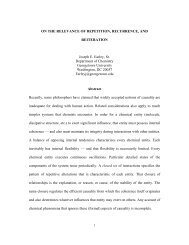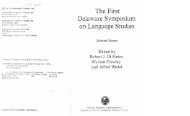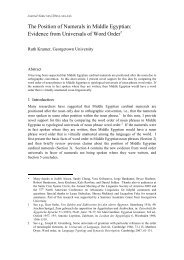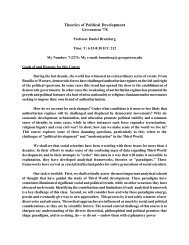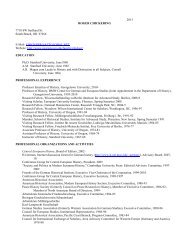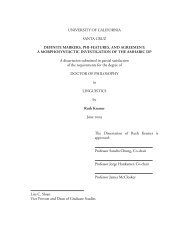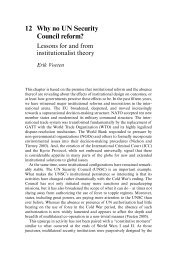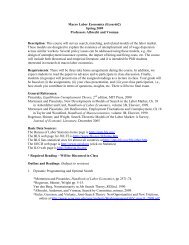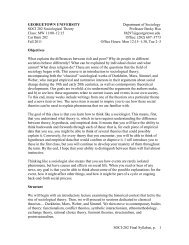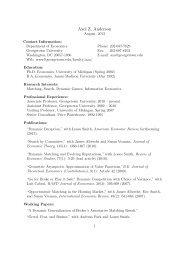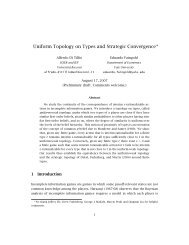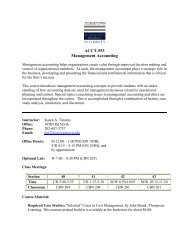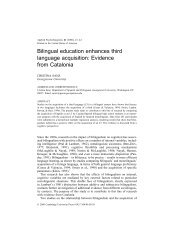PDF File - Georgetown University
PDF File - Georgetown University
PDF File - Georgetown University
Create successful ePaper yourself
Turn your PDF publications into a flip-book with our unique Google optimized e-Paper software.
Luca Anderlini, Leonardo Felli and Andrew Postlewaite 13verifiable and hence not contractible). In this world it is in fact welfare-improving to imposefurther incompleteness by making some contracts effectively impossible in equilibrium. Thisis what our active court does. This is similar to the finding in Bernheim and Whinston(1998) that under some conditions, when one assumes that contracts are exogenously coarse,equilibrium contracts may be even coarser than the constraints impose. However, our mainresult differs from theirs in that it does not assert that contracts will be coarse (or incomplete)in equilibrium. Rather it asserts that imposing further incompleteness can increase expectedwelfare.We conclude by remarking again that the prescriptions we have derived that pinpointhow active courts should intervene can also be interpreted as telling us how mandatory rulesshould be designed. This paper is, in a sense, agnostic about this. In either case we identifythe welfare enhancing role of an ex-ante commitment to void certain aspects of a contract.Whether we can interpret our results as indicating a role for active courts or a role formandatory rules depends on whether the rule that the Court commits to is the result of anaccumulated body of precedents (it is case law) or instead is part of a statute designed by alegislator. As we noted in the introduction, the information on which the court can conditionits intervention is likely to be finer than that available to the legislators designing mandatoryrules.ReferencesAdler, B. E. (1999): “The Questionable Ascent of Hadley v. Baxendale,” Stanford LawReview, 51(6), 1547–1590.Aghion, P., and B. Hermalin (1990): “Legal Restrictions on Private Contracts CanEnhance Efficiency,” Journal of Law, Economics and Organization, 6, 381–409.Anderlini, L., L. Felli, and A. Postlewaite (2006): “Should Courts Always EnforceWhat Contracting Parties Write?,” <strong>University</strong> of Pennsylvania, Institute for Law &Economics Research Paper No. 06-24.(2007): “Courts of Law and Unforeseen Contingencies,” Journal of Law, Economics,& Organization, 23, 662–684.Anderlini, L., L. Felli, and A. Riboni (2010): “Why Stare-Decisis?,” London Schoolof Economics mimeo.



